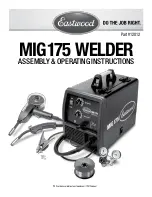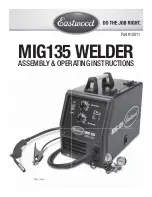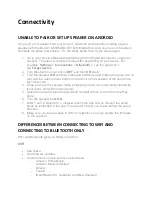
6
To allow more flexibility in seating arrangements, your Legacy loudspeaker is
designed for broad lateral coverage. Optimal listener position is actually
about 5 to 15 degrees off the axis normal to the loudspeaker baffle. Assum-
ing a listener distance of about ten feet, begin by placing the speakers ap-
proximately 7 feet apart and about 1 – 3 feet from the wall behind them. In
most rooms this will afford a speaker position at least 2 feet or more from
the side walls. The amount of recommended "toe-in" is a function of the lis-
tening angle. As the overall listening angle increases from 40 degrees, the
amount of toe-in should increase. Your Legacy speaker is optimized for a flat
response in the far field. Best results are obtained vertically with the lis-
tener's ear at tweeter level with the loudspeakers gently toed in toward the
listener. Increasing the degree of toe-in is recommended when placement
next to sidewalls is required. Placing the loudspeaker or the listener near a
room boundary will generally increase low frequency impact. If you are
forced to position one or both of your loudspeakers in a corner, be prepared
to reduce bass output via the control switches on the rear terminal plate of
each loudspeaker. You may also wish to reduce low frequency output with
your preamp's bass tone control.
Speaker Placement
Summary of Contents for Classic HD
Page 1: ...Owners Manual For The FOCUS SE Loudspeaker System ...
Page 23: ...23 Notes ...







































